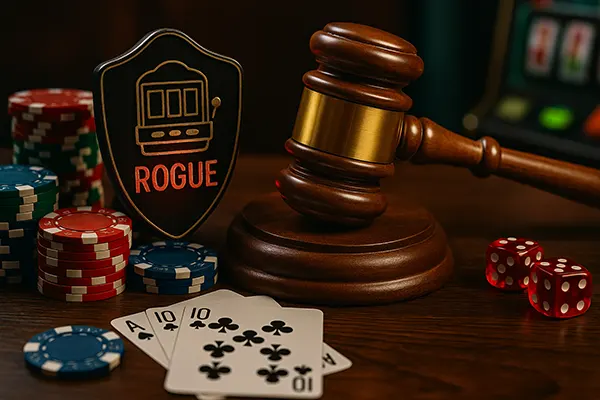
Blacklists in Online Casinos: How They Are Formed, Who Maintains Them, and Whom to Trust
Blacklists in the world of online casinos play a crucial role in ensuring player safety and accountability. These lists are developed by watchdogs, industry analysts, and experienced reviewers to highlight unreliable or fraudulent operators. For players, such lists are not just recommendations — they are essential tools for making informed decisions and avoiding dishonest operators.
How Blacklists Are Created
The formation of a blacklist is not arbitrary. It follows a systematic approach that involves monitoring operators, assessing complaints, and verifying regulatory violations. Experts behind these lists often collaborate with legal professionals, cybersecurity analysts, and experienced players to assess suspicious practices. Data from gambling commissions, third-party audits, and user reports all contribute to shaping the final list.
Typically, a casino ends up on a blacklist after repeated or severe offences. These may include refusing to pay out legitimate winnings, altering bonus terms after a deposit, or providing games from uncertified providers. Consistency in misconduct is a red flag, and once confirmed through multiple independent sources, it can lead to a casino being listed.
Importantly, blacklist maintenance includes regular reviews. Operators can be removed if they resolve disputes, adopt transparent policies, or come under new management. However, regaining trust takes time and evidence of change, often reviewed over several months or longer.
Common Reasons for Blacklisting
The most frequent reason an operator appears on a blacklist is non-payment of winnings. This can take the form of prolonged delays, unjustified accusations of fraud, or unexplained account closures. Such tactics are used to avoid payouts while appearing compliant on the surface.
Other significant triggers include misleading promotions, which can deceive users into spending more without clear terms. Inaccurate game results, unclear withdrawal requirements, or hidden clauses in terms and conditions can also signal unethical practices.
Licensing issues are equally vital. Operating without a valid licence or under a non-reputable regulatory body is a major warning sign. Some casinos even fabricate licences or display logos without authorisation, making verification crucial for player safety.
Who Maintains Casino Blacklists
Several independent organisations are dedicated to maintaining up-to-date and unbiased blacklists. These include consumer protection websites, specialised gambling watchdog groups, and investigative journalists who follow gambling trends closely. Their reports often stem from community feedback, industry insights, and legal records.
One of the most respected sources is Casino Guru, known for its structured complaint system and transparent evaluation methods. Similarly, sites like AskGamblers or LCB provide detailed complaint histories and resolution statistics, offering users a holistic view of operator conduct.
Notably, some blacklists are maintained by gambling communities on forums such as Casinomeister, where experienced players share firsthand stories and discuss operator reliability. While informal, these insights can be particularly revealing and highlight trends missed by larger outlets.
How to Evaluate a Blacklist Source
When relying on a blacklist, it’s essential to consider its credibility. Start by checking how the list was compiled. Is there a clear methodology? Are there references to evidence, such as complaint logs, licence details, or third-party verifications?
A trustworthy blacklist will also show when entries were last updated. Timeliness ensures that resolved issues don’t unfairly tarnish a brand’s reputation. Conversely, outdated lists may misinform users and harm legitimate businesses that have since reformed.
Finally, pay attention to transparency. Reliable sources allow operators to respond to complaints, offer appeal mechanisms, and provide explanations for their decisions. Bias-free, factual presentation is a sign of a trustworthy resource that puts user safety first.

Whom to Trust When Choosing a Casino
With numerous voices in the gambling review space, knowing whom to trust is vital. Look for reviewers and analysts with verifiable expertise. Backgrounds in cybersecurity, gaming law, or long-term industry presence add weight to their assessments. Credibility is also strengthened by partnerships with recognised regulators or fair play auditors.
Player communities can be insightful, but critical thinking is required. Individual experiences vary, and emotional responses may colour judgement. Consider volume and consistency in player feedback rather than isolated complaints when assessing an operator’s reputation.
Ultimately, trust should be placed in sources with a track record of factual, balanced reporting. Avoid sites that feature only glowing reviews or fail to publish complaints. Genuine evaluation includes both praise and critique, reflecting the true nature of the business.
Practical Steps for Players
Before choosing an operator, always cross-check with multiple blacklist sources. Don’t rely solely on advertising or bonus offers — they can be misleading. Verify licence numbers with the issuing authority, and examine terms and conditions thoroughly.
Read player reviews across independent platforms, and see how complaints are handled. Transparency in dispute resolution is often a good sign of integrity. Operators that respond professionally and consistently solve issues tend to respect their clientele.
Lastly, trust your instincts. If an offer seems too good to be true, it probably is. Responsible play starts with informed decisions — and that includes knowing whom to trust and when to walk away.
